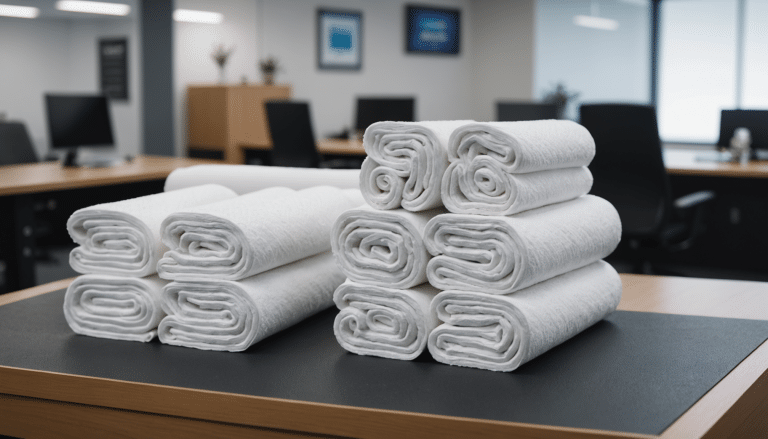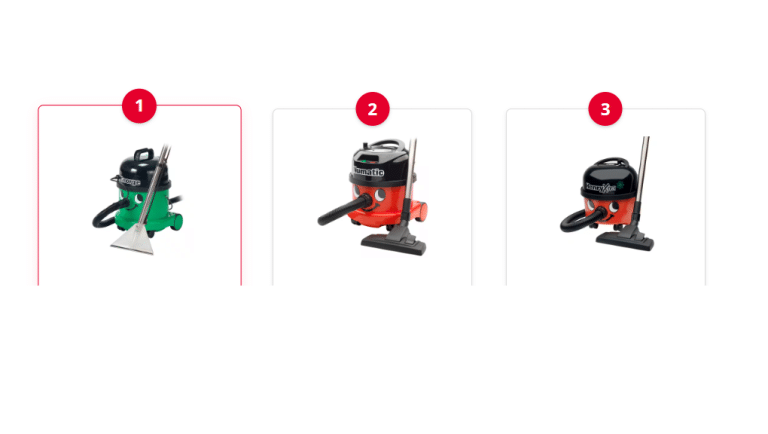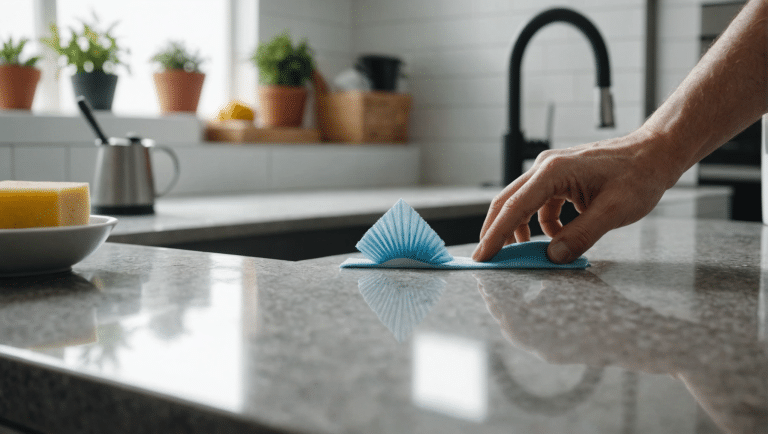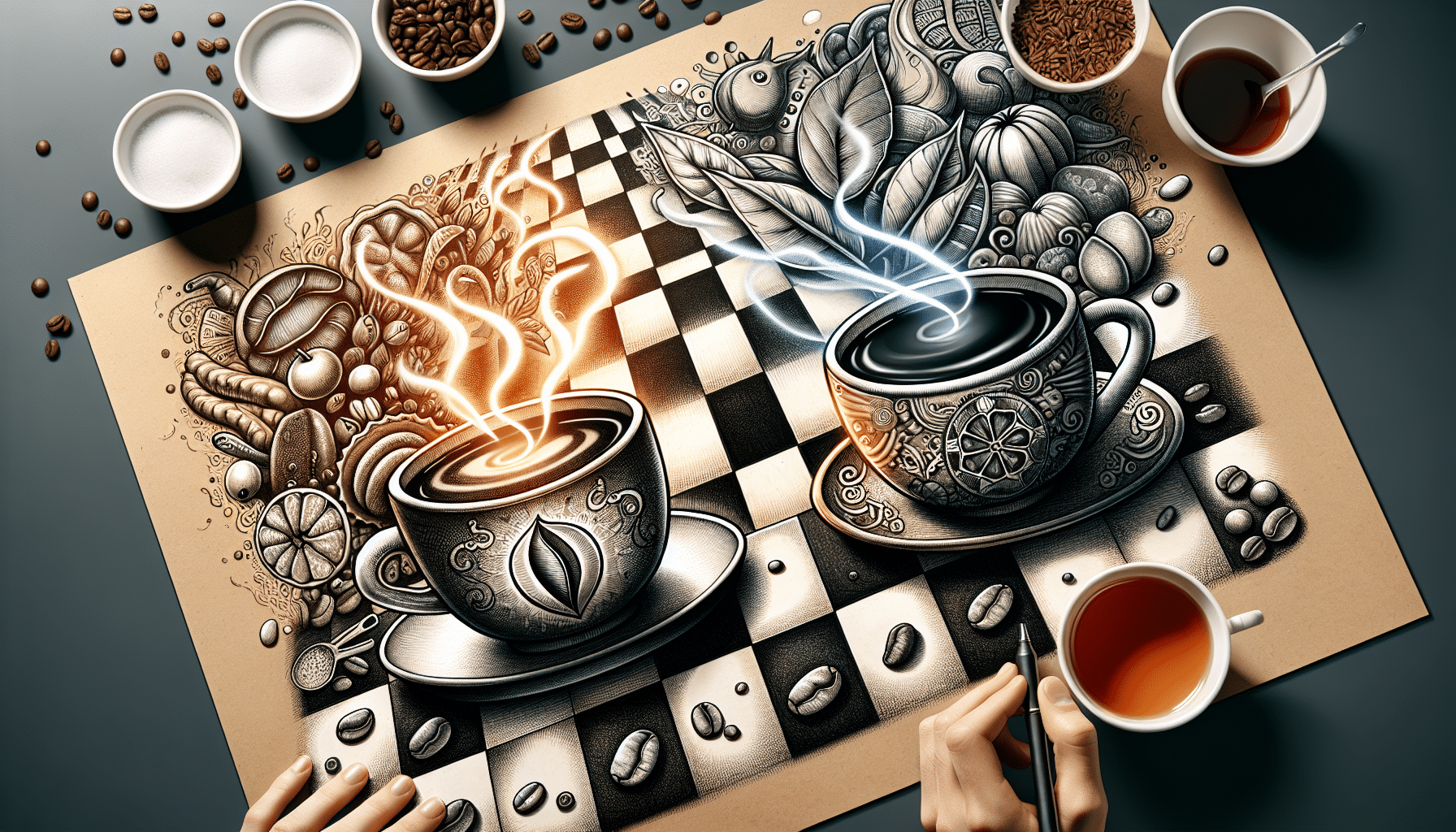
Coffee vs. Tea: Unlocking the Caffeine Mystery
Does tea have more caffeine than coffee? Dive into our exploration of caffeine content and unearth surprising facts about your daily brew.
Warmly welcome to our exploration into the world of tea and coffee. We all love a stimulating cup of our favorite beverage, but a common question we often ponder over is – does tea contain more caffeine than coffee? As our understanding evolves, it becomes clear that the answer is not as straightforward as it seems. We’ve got an informative discussion lined up, leaving no bean unturned or leaf unsteeped. By the end of this article, we aim to give a clear verdict and put an end to this hotly brewed debate. So, shall we dive in?
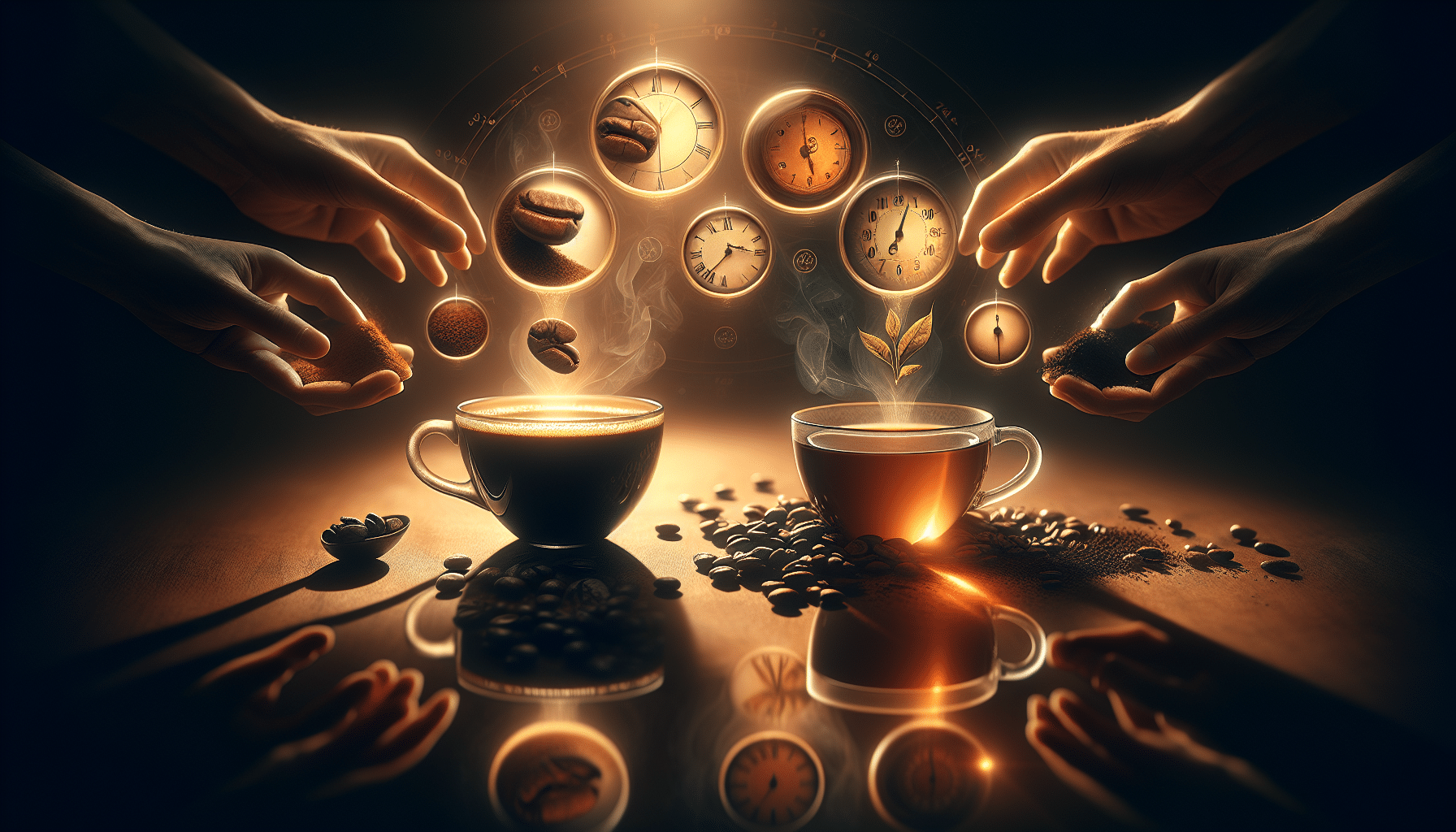
Key Takeaways
- Caffeine content in tea and coffee is influenced by several factors including type of leaves or beans, brewing time and temperature.
- In general, coffee tends to contain more caffeine than tea, though the extraction process can swing the scales.
- Regardless of caffeine content, the delight of both beverages lies beyond the punch of caffeine, in their unique flavors and experience.
Unraveling the Tea vs. Coffee Debate
Every time you feel the urge for a pick-me-up, do you find yourself caught in a dilly of a pickle over opting for tea or coffee? The common question of whether tea contains more caffeine or coffee hooks our curiosity without fail.
Here we stand shoulder to shoulder, thriving in the vast landscape of bevvies. So, let’s probe the hustle sharp enough to have set an age-old debate stirring – does caffeine in tea outweigh that in coffee? Time to usher in facts over folklore!
Understanding Caffeine Content in Tea
As we step onto the tea turf, we are met with a myriad of types. Green, black, or white, each type, coupled with the brewing process it undergoes, varies widely affecting the caffeine content. Does the type of tea leaves used play a part too? Quite against the run of play, the answer is yes.
For instance, caffeine in green tea can be lower than a robust black tea. Factors like how long the leaves are steeped and the water temperature can also be game-changers. Complex, right?
Digging Deep into Coffee’s Caffeine Levels
There’s more to the humble coffee bean than meets the eye. While brewing your favorite java, whether you’re using these popular choices or others, it’s good to know that aspects like water temperature and brewing time can influence the caffeine levels you hook with each sip.
For the caffeinated beverages club out there, also know that the coffee’s roast level doesn’t necessarily correlate with its caffeine content. Surprising, right?
| Beverage | Type | Average Caffeine Content per Cup |
|---|---|---|
| Tea | Green | 28 mg |
| Tea | Black | 47 mg |
| Tea | White | 25 mg |
| Coffee | Brewed | 95 mg |
| Coffee | Espresso | 63 mg |
| Coffee | Decaf | 2 mg |
Misconceptions and Myths about Caffeine in Tea and Coffee
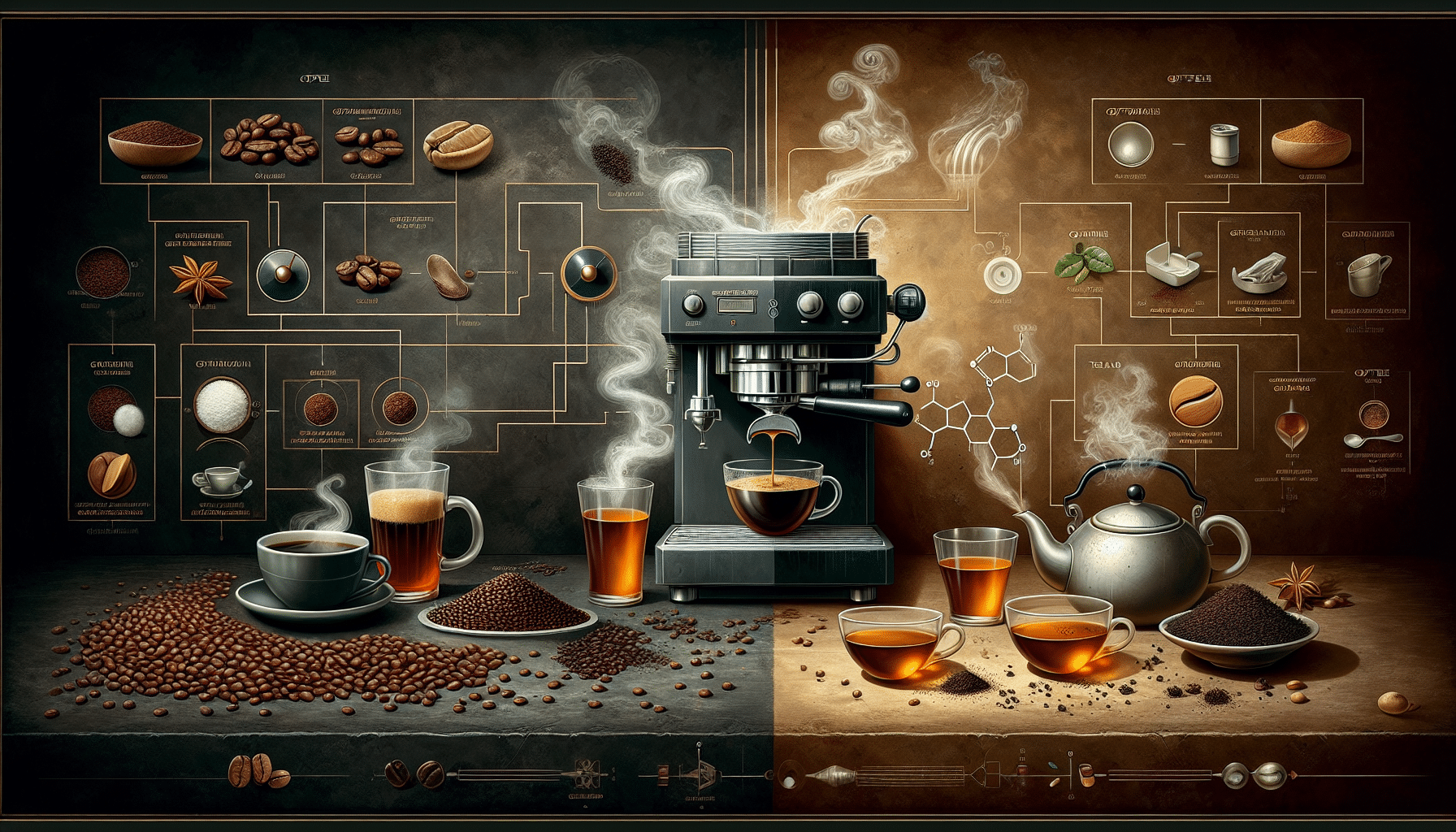
Dousing the flames of confusion, know that decaf isn’t synonymous with caffeine-free. Whether it’s decaf tea or coffee, some caffeine traces are usually present. The caffeine per serving can vary a lot depending on the brand and variety of the drink.
| Beverage | Brewing Factor | Impact on Caffeine Level |
|---|---|---|
| Tea | Steeping Time | Longer steeping increases caffeine |
| Tea | Water Temperature | Hotter water extracts more caffeine |
| Tea | Type of Leaf | Varies by type |
| Coffee | Brewing Time | Longer brewing increases caffeine |
| Coffee | Water Temperature | Hotter water extracts more caffeine |
| Coffee | Type of Bean | Varies by type |
The Verdict: Is Tea More Caffeinated Than Coffee?
Peeling back the layers on the caffeine content of both coffee and tea, we ask, does one pack more caffeine? The answer isn’t as simple as a yes or no with various factors in the mix. Even the brewing time of your net cup of tea can sway the caffeine content by many folds.
Is tea a stronger tea than coffee in terms of caffeine? If you’ve been nursing the thought, you’re not alone. And to answer, it’s generally acknowledged that coffee, pound for pound, tends to house a more generous caffeine punch than tea. So, while deciding between tea or coffee, remember to enjoy the symphony of flavors in your cup beyond just the caffeine content.
Conclusion
We’ve stirred the pot on the ‘tea vs coffee’ caffeine face-off. It’s clear that numerous factors guide how much caffeine you’re sipping with each brew. And, yes, the type of leaves or beans, brewing time, and temperature all have a significant role.
As measure for measure goes, coffee generally houses more caffeine. However, the drink’s allure surely goes beyond just caffeine, into the rich tapestry of flavors each cup offers. After all, it’s these nuances that make our tea or coffee breaks so unique, isn’t it?
Frequently Asked Questions
What factors influence caffeine content in tea and coffee?
The amount of caffeine in tea and coffee can vary significantly depending on several factors. These include the type of leaves or beans used, brewing time, brewing temperature, and the serving size.
Why does coffee generally have more caffeine than tea?
While tea leaves might contain more caffeine in their dried state, the brewing process for coffee tends to extract a higher concentration of caffeine. Plus, we usually use more coffee than tea per serving.
Does roast level affect caffeine levels in coffee?
No, there is a common misconception that the darker the roast of coffee, the stronger its caffeine content. However, the roast level has minimal impact on the caffeine levels in coffee.
Does decaffeinated tea and coffee contain caffeine?
Decaffeinated does not mean completely void of caffeine. While they contain vastly lesser amounts, both decaf tea and coffee still have traces of caffeine.
Can brewing time affect the caffeine content in tea?
Yes, brewing time can severely affect the caffeine content in tea. The longer the tea leaves are steeped, the higher the caffeine content generally becomes.










